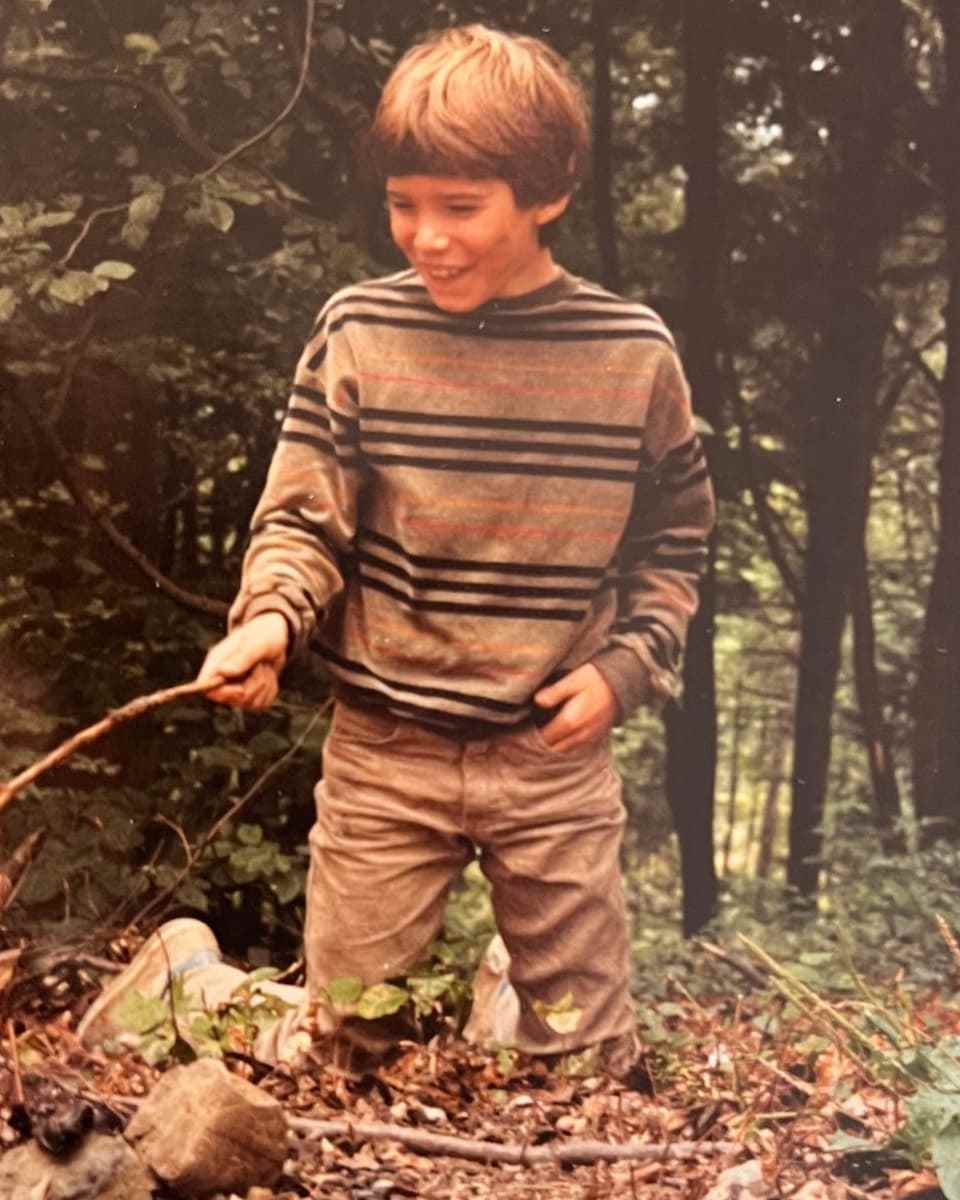You know him from films like “The Sandman” or “Princess”: Peter Luisi has been working as a screenwriter, director and producer for over 20 years and is just as much a creative mind as an entrepreneur.
Before studying film production in California, Luisi attended the Rudolf Steiner School in Zurich from 1982 to 1994. How did this period shape his work? And would he do it again?
SRF: Peter Luisi, you were a Steiner student. How do these schools look today?
Peter Luisi: There are different views of the Steiner School. Most people see it as a privilege – I’m one of them.
What memories do you have of your school days?
We did a lot of theatre, went on excursions and were told stories. And we painted for weeks or worked with wood and stones. For me, as a child, it was all natural.
It’s nice when there are other things for children to do than cram.
Only afterwards did I realize what a privilege it was. Some laugh at the fact that we cut stones or “glismet”. But it’s nice for children when there are other things in life than cramming.
How do you react when people make fun of the Steiner school?
I take that with humor. I became an artist, so certain clichés are correct. I don’t know anything other than the Steiner School, but it was good for me.
I like the principle behind it, even if the implementation is of course very different. In addition, every child is different and the Steiner school is not the best for every child. Switzerland basically has great schools and I welcome the fact that we have different school systems and not one standard for everyone.

Legend:
Fun in the woods: In 1985, a 10-year-old Peter Luisi enjoys being in nature during a school trip.
Peter Luisi
From your point of view, there is no need to print grades?
We had no grades the whole school time. After that, I was all the more ambitious: I graduated from film school at a university in California. I had a lot of 6s there. In just one subject it “only” suffices for a 5-6: in creative writing of all things… So all in all, it worked out well for me.
At that time I was at the university with a Japanese woman who was exposed to the pressure to perform from kindergarten on. Still, I was way better than them. So it didn’t help that she was “tormented” as a child.
Will you send your own child to the Steiner School?
Our son is only two and a half years old, but I think we will choose the Steiner school. Of course it depends on where the school is located and it is also a question of costs. There is no public support and you pay income-related school fees.
What do you think: how would you have fared at an “ordinary” school?
I don’t think I would have had any trouble in a state school either. Grades didn’t bother me later when I was 18. And at the Steiner School, too, we received an assessment from the upper grades. For example, there was feedback on an essay on a scale, similar to grades.
From a certain age it makes sense to compare yourself.
But I was extremely glad that I didn’t have to struggle with grades as a small child. From a certain age, I think it makes sense to be able to compare and measure yourself. As a teenager, I also want to be prepared for later, “real” life. But don’t start too early.
In the meantime, the state schools have adopted some elements of the Steiner school – such as the focus on skills, early English, project teaching and self-organized learning. Do we still need alternative models like the Steiner school?
Yes. A lot has happened at public schools in the last 20 years, and I find that very positive. At the same time, the Steiner School is finding it increasingly difficult. However, I don’t find them superfluous by a long shot.
The differences are still big. But the teacher and the class are also decisive for the quality anyway – no matter at which school.
What role did the musical disposition of the Steiner school play in your becoming a filmmaker?
It sure helped. But I would probably still have become a filmmaker. It has always been my passion and a big wish. Perhaps I was additionally stimulated.
In your films you are the director, screenwriter and producer. Do you owe this diversity to the Steiner school?
The Steiner School wants to train children to be independent people who can think for themselves. I do believe that applies to me. But this also applies to others who attended a normal school. So it’s difficult to answer.
Anyway, I really enjoyed my school days. I learned a lot about life and gained important experiences that I would not have had otherwise.
Steiner schools have a certain filter function.
Is there anything you missed back then?
The Steiner school is expensive. I think it’s a shame they can’t afford them all. That’s why it certainly has a certain filter function. They are all children of parents who find this expense worthwhile.
I also think it’s a shame that the Steiner School isn’t publicly funded. In general, I would like more support, recognition and respect for the work of teachers. Schools are extremely formative for the lives of children.
Jonas Wydler conducted the interview.
